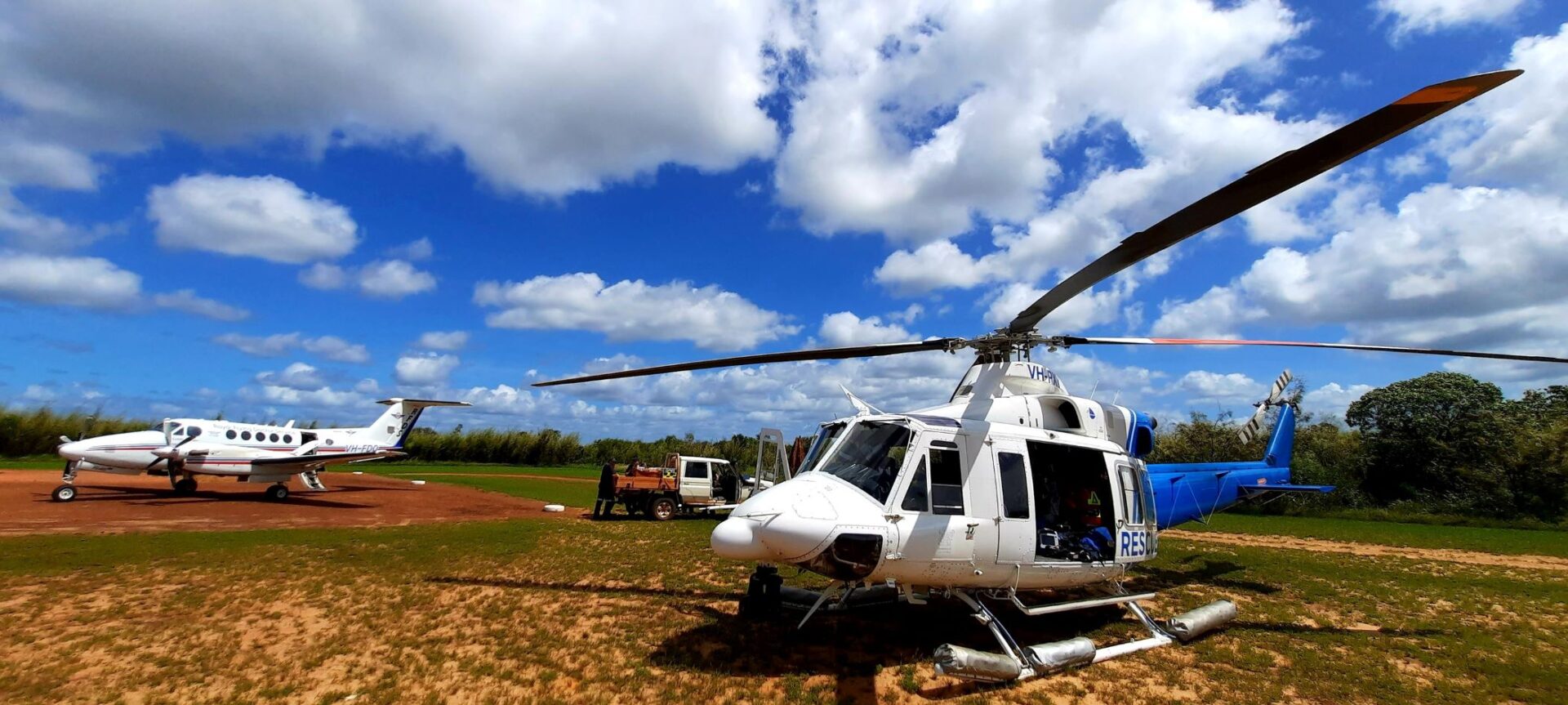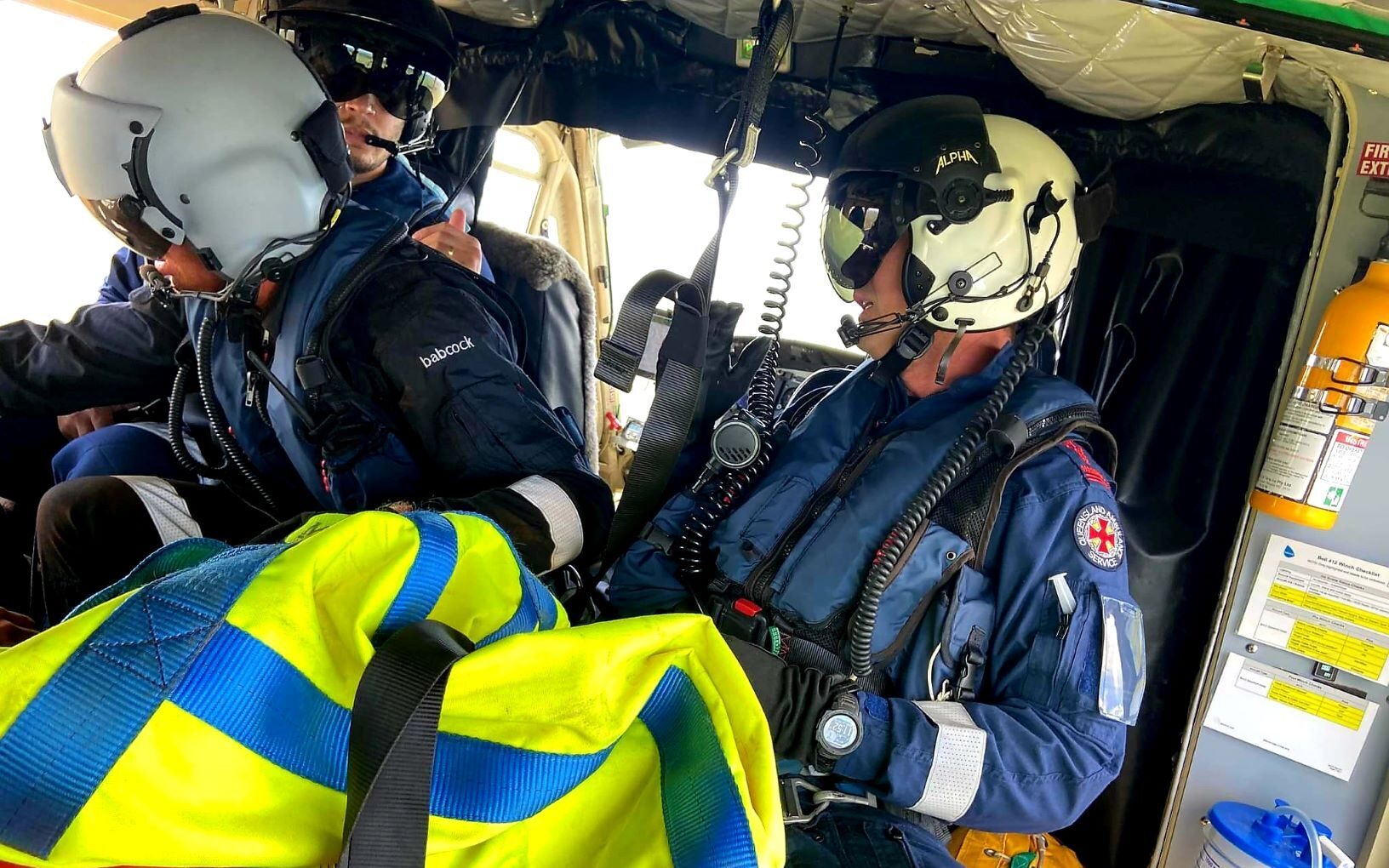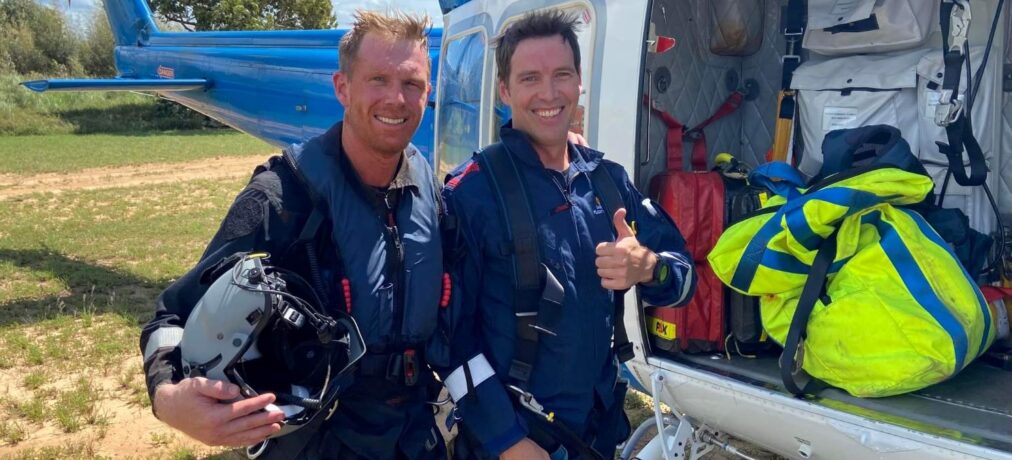Babcock Australasia’s Rescue Crew Officer (RCO) Ben Malby says he has the best job in the world, serving communities across the Torres Strait as part of a ‘flying ICU’ team operating from Babcock’s Horn Island base.
As a former professional lifeguard with the City of Gold Coast for 15 years, Ben always had a keen interest in search and rescue, first as a Dispatcher Observer with the Australian Maritime Safety Authority (AMSA), before joining Babcock in 2020.
Ben said the unknown is usually the most challenging part of any mission.
“Operations can prove challenging in the Torres Strait; the region is prone to extreme weather conditions and often helicopters are the only way to get someone to hospital,” he said.
“We need to be ready to go to help the community day or night. Not knowing what you’re about to see or what you’re going into, there’s always a sense of nervousness because you know someone’s in trouble, but you feel prepared thanks to your training. It sets you in the right direction and you can focus on the job.
“The team is working as a collective to get the mission completed safely. I’m very fortunate with the team I fly with – the crewmen and pilot are very experienced and always safe.”
Ben’s first winch job came six months into his onshore role as an RCO with Babcock based on Horn Island in the Torres Strait.
“My first winch job came through at 10am for an accident at the Cape on the Telegraph Track, and we needed to transfer from Horn Island to Thursday Island Hospital to pick up a Paramedic and Doctor. As it happens, it was the Paramedic’s first winch also, which was great to experience together,” Ben said.
“We arrived at the Cape quickly and located the patient who was a part of a dirt bike expedition. The patient was slipping in and out of consciousness and with nowhere to land in the area, we knew a stretcher winch was the only means of immediate extraction.”
Following the safe rescue of the patient, Ben and the team landed in a nearby airfield where the patient would be transferred to another aircraft for the trip to the hospital.
“After safely transferring the patient, we received another similar call for a rescue of another injured dirt bike tourist close by. By chance, the airfield was just a 10-minute drive away so we could travel by car to help secure the patient,” he said.
“He was not in a good way, so we quickly stabilised the patient and brought him back to the nearby airfield to be taken to hospital for treatment with the other patient we’d winched out just an hour earlier.
“It’s very fulfilling flying to the outer islands in the Torres Strait in the early hours of the morning to provide some care for someone that’s in grave danger or quite ill. You get a sense of pride for helping the community.”
Babcock has worked together with Queensland Health since 2007, providing aerial support for emergency medical services (EMS), including inter-hospital transfers, primary medical evacuation and search and rescue (SAR) to regional and remote Torres Strait communities from Babcock’s purpose-built facility at Horn Island Airport.
Ben said becoming an RCO is a dream come true but requires patience and the completion of thorough training and courses.
“You have to be patient because, everyone knows, it’s the best job in the world. Those who do it never leave and there’s a good reason for that,” he said.
“Before applying for a role as an RCO, undertake as many courses as you can, achieving the minimum requirements. Although many team members come through the military channels, Babcock has a range of avenues to enter the competitive industry if you’ve got some of the introductory training. Babcock has some of the best checking trainers in Australia, and I feel grateful to learn from the best.
“It’s a unique experience in the Torres Strait. Every day is different, so it keeps you engaged, and the people I’ve worked with are lovely. There’s nothing I’d rather do.”

Following the safe rescue of the patient, Ben and the team landed in a nearby airfield where the patient would be transferred to another aircraft for the trip to the hospital.
 Babcock has worked together with Queensland Health since 2007, providing aerial support for emergency medical services (EMS).
Babcock has worked together with Queensland Health since 2007, providing aerial support for emergency medical services (EMS).

